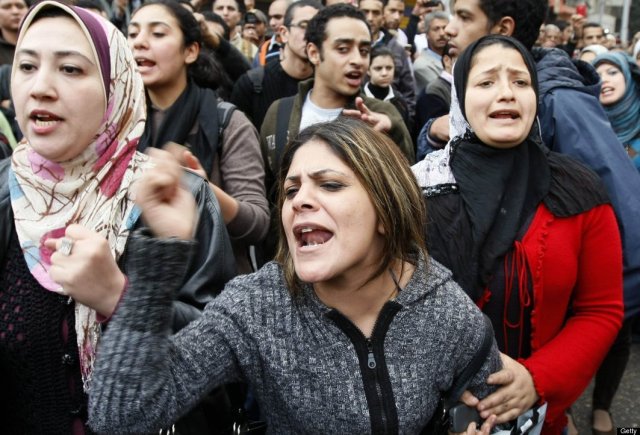
The March 8 demonstrations commemorating 100 years of International Women’s Day in Cairo, Egypt — flowing on from the inspirational revolution that toppled dictator Hosni Mubarak on February 11 — have highlighted the ongoing struggle for women’s rights around the world.
One hundred years ago, more than one million people in four European countries attended the first IWD protest. It was organised in support of the right to vote and equal pay for women.
Through protests and relentless campaigning, women have won many gains over the last century, including the right to vote, work outside the home, and many formal rights against discrimination. But there is still a long way to go.
And once rights are won they aren't won forever — if we become complacent and they're not defended, these gains can be lost.
Influential conservative and religious organisations are always campaigning to roll back women’s rights. An example of this is the campaign to stop the decriminalisation of abortion in Victoria in 2008.
It's useful to be reminded of the appalling statistics that still face women everywhere.
This was shown in a video clip released on March 8 featuring actor Daniel Craig in character as James Bond, being told by M that “the world has changed, but the numbers remain stacked against us”.
“Women are responsible for two thirds of work done worldwide, yet earn only 10% of the total income and own 1% of the property.”
Bond then appears dressed as a woman, as he listens to M ask, “Are we equals? Until the answer is yes we should never stop asking.” The video was part of a campaign by weareequals.org to celebrate IWD and discuss the inequalities that still exist.
In Australia, for every woman who is cynical about feminism and wants to just live her life without worrying about politics, there is a woman who looks around in anger at the limited choices she faces and the old-fashioned expectations placed on her.
Many women ask: Why does the pay gap still exist? Why are women still expected to do most of the housework and child care and still work full time? When the conventional wisdom is that protests don't work anymore, how do we fight for equal rights?

In Egypt, the protests of millions of people that lead to the overthrow of Mubarak opened up new democratic space.
The revolution called for democracy, equality and freedom. But importantly, it also advanced the position of women, because it allowed women, and other excluded groups in society, to take part in a movement that was redefining society.
Women not only led many of the protests, but were leaders in the movement which organised them. The huge continuous demonstrations in Tahrir Square became known as a place where women were free of the sexual harassment that they were usually subjected to.
Side by side with men, Egyptian women faced the teargas and repression meted out by the regime.
Organisations fighting for women’s rights have existed in Egypt since the 1920s and women have been elected MPs since the ’50s, but even after the fall of Mubarak there is a long way to go to gain equal rights for women.
After Mubarak was overthrown, a 10-person committee was authorised to create a new constitution — not a single woman was included on this committee.
In response, women called for a “Million Woman March” on International Women’s Day, in the same way in which protesters had called for a million person march to overthrow Mubarak weeks earlier.
The march called for an end to all forms of discrimination against women and for the active participation of women to create a new constitution, measures to combat violence against women as well as requesting that women have the right to run in presidential elections.
Unfortunately the turnout was small, and the women were met by a hostile group of men who yelled insults and physically assaulted them.
Nevertheless, the women are not deterred and are now pushing for 30% representation on the general committees that will advise changes to the constitution in the coming weeks. Another rally is planned for March 16 — Egyptian Women’s Day.
Egyptian women have the right to an equal position in the new society, and through their role in the revolution they have learned the most important lesson, which is that through ongoing mass protest and determination they will eventually win their demands.
This should inspire all fighters for women’s rights around the world. Through building a mass movement for change we can win full equality for women.
Comments
Anonymous replied on Permalink
Anonymous replied on Permalink
Anonymous replied on Permalink
Anonymous replied on Permalink
Anonymous replied on Permalink
Anonymous replied on Permalink
Anonymous replied on Permalink
Anonymous replied on Permalink
Anonymous replied on Permalink
Anonymous replied on Permalink
Anonymous replied on Permalink
Anonymous replied on Permalink